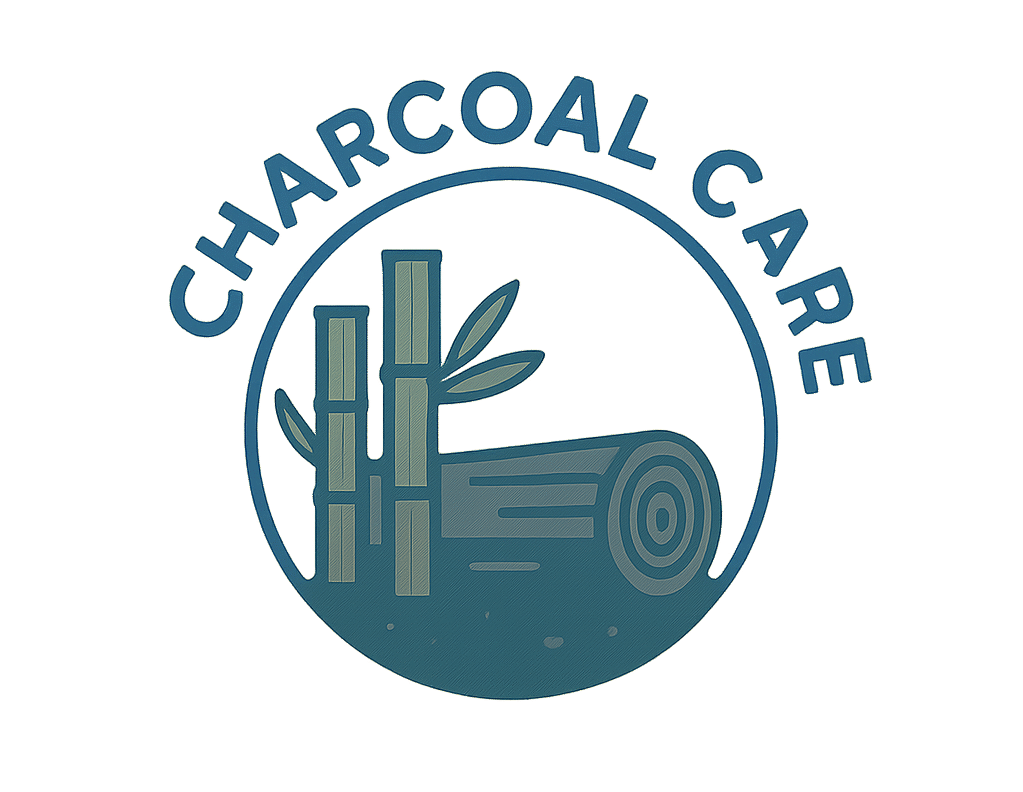In the quest for the purest drinking water, natural filters are becoming increasingly popular, with Binchotan and regular charcoal leading the charge. These natural wonders are renowned for their ability to purify water without chemicals or electricity. But, how do they stack up against each other?
Originating from Japan, Binchotan is a type of activated charcoal hailed for its high-quality filtration and health benefits. It’s known to absorb impurities and add minerals, making your water not just clean, but healthier.
On the other hand, regular charcoal, though less glamorous than its Japanese counterpart, is widely used and celebrated for its straightforward purification process. It’s a tried-and-true option that can effectively remove toxins and contaminants.
So, which one should sit at the heart of your hydration routine? Whether you’re already a fan of charcoal or just starting your journey into natural filtration, understanding the differences between these two can guide you toward the best choice for your needs and lifestyle. Let’s dive deeper into the world of Binchotan and charcoal to see which emerges as the winner in the battle for the best natural water filter.
Key Differences Between Binchotan and Charcoal
While both Binchotan and regular charcoal serve the noble purpose of purifying water, their differences lie in their origin, production, and performance.
Binchotan, revered for its artisanal craftsmanship, is crafted from Japanese oak wood through a meticulous process that enhances its porosity and effectiveness. This heritage technique results in a denser, more durable charcoal that not only absorbs impurities but also releases beneficial minerals like calcium and magnesium into the water.
In contrast, regular charcoal is typically made from a variety of woods or even coconut shells. Though it undergoes activation to boost its purifying abilities, it lacks the mineral-infusing quality of Binchotan. It’s more of a generalist compared to the specialist nature of Binchotan.
Additionally, Binchotan is celebrated for its lengthy lifespan, often lasting several months with proper care. Regular charcoal, however, requires more frequent replacement to ensure optimal performance.
Cost is another consideration, with Binchotan generally being more expensive due to its superior qualities and production intricacies. Meanwhile, regular charcoal offers a more budget-friendly alternative.
Choosing between these options ultimately hinges on your priorities, whether that’s the refinement of Binchotan or the straightforward efficiency of regular charcoal.
How Binchotan Works As a Water Filter
Binchotan’s magic lies in its ability to transform ordinary tap water into something extraordinary. At its core, its highly porous structure is what sets it apart. This porosity gives Binchotan a broad surface area, ideal for trapping unwanted impurities and chemicals.
Absorption and Mineral Enhancement
As water passes through Binchotan, it absorbs impurities like chlorine and heavy metals commonly found in tap water. But it doesn’t stop there—it also enriches the water with essential minerals such as calcium, potassium, and magnesium. This dual action not only purifies but also enhances the water’s taste, making it refreshingly crisp and clear.
Compared to other filtration methods that might strip water of beneficial elements, Binchotan helps maintain a natural balance. This makes it a top choice for those mindful of both their health and the environment.
What’s more, using Binchotan is as simple as immersing it in your water jug or bottle. Just give it a quick boil every few weeks to refresh its filtration prowess, and you’re good to go. It’s a low-maintenance solution with high rewards, seamlessly blending tradition with modern hydration needs.
Comparing the Filtration Effectiveness of Binchotan and Charcoal
When it comes to filtration, both Binchotan and charcoal are renowned for their ability to purify water effectively. Yet, their methods and outcomes show notable differences worth exploring.
Purity and Taste
Binchotan’s porous structure is incredibly effective at capturing a wide array of impurities, including chlorine, odors, and even some heavy metals. This comprehensive filtration results in water that tastes noticeably cleaner and more refreshing, with additional beneficial minerals.
Regular charcoal is no slouch either, effectively removing many common contaminants such as chlorine and certain chemicals. However, it doesn’t enrich the water with minerals as Binchotan does. For those prioritizing taste and mineral enhancement, Binchotan has a slight edge.
Longevity and Consistency
Both options offer excellent filtration, but Binchotan shines in longevity. Its tough composition means it can last for months, consistently performing at a high level. Standard charcoal tends to require more frequent replacement to maintain its filtration abilities, which could affect its ongoing effectiveness.
Ultimately, the choice hinges on individual needs—whether it’s the extra mineral benefits of Binchotan or the reliable, widespread availability of regular charcoal. Each has its merits, making your decision a matter of personal preference in the quest for pure water.

Environmental Impact of Binchotan and Charcoal Filters
When choosing a water filter, it’s essential to consider its impact on the environment. Both Binchotan and charcoal filters present eco-friendly options, yet there are differences in their environmental footprints.
Sustainable Sourcing
Binchotan is crafted from ubame oak, a resource that’s sustainably harvested in Japan. This process supports traditional forestry practices, ensuring that tree harvesting is done responsibly, with a focus on regeneration and minimal ecological disruption. This makes Binchotan a sustainable choice that aligns with environmentally conscious values.
Regular charcoal, meanwhile, can sometimes be derived from a broader range of materials, including less sustainably sourced woods. However, options made from renewable resources like coconut shells are available and provide an eco-friendlier choice. It’s essential to check labels or sources when choosing charcoal filters to ensure you’re making a sustainable choice.
Both Binchotan and charcoal filters contribute to reducing reliance on single-use plastics, like bottled water, thereby cutting down on environmental waste. When they’re no longer effective, Binchotan and charcoal can often seamlessly return to the earth as compost, closing the sustainability loop.
In the end, choosing between these filters involves weighing their respective environmental benefits and choosing the option that best aligns with your values and lifestyle.
Conclusion: Choosing the Best Natural Water Filter for Your Needs
Selecting the right natural water filter boils down to what matters most to you, whether it’s mineral-rich water, sustainability, or affordability. Binchotan, with its rich heritage and ability to enhance water with beneficial minerals, is a wonderful choice for those who appreciate refined taste and health benefits. Its long-lasting nature and commitment to sustainability make it an enticing option for eco-conscious individuals.
On the other hand, regular charcoal is reliable, widely available, and effective in removing common impurities. It’s the go-to for those who seek straightforward, effective purification without the frills. Plus, when sourced responsibly, it can also support your green goals.
When making your decision, consider your priorities—do you value the mineral bonus of Binchotan or the straightforward effectiveness and accessibility of regular charcoal? Think about the environmental impact, longevity, and how much maintenance you’re willing to manage.
Ultimately, both options provide excellent alternatives to traditional filtration systems, allowing you to enjoy clean, great-tasting water while reducing your environmental footprint. By prioritizing your personal needs and lifestyle preferences, you can confidently choose the natural water filter that best suits you.
Remember, the journey to better hydration starts with understanding what fulfills your criteria. Whether it’s the artisanal touch of Binchotan or the practical efficiency of regular charcoal, embracing a natural filter is a meaningful step toward a healthier, more sustainable lifestyle. Whatever path you choose, enjoy the pure refreshment that comes with water that’s filtered by nature itself.

